In this interview with journalists, the gubernatorial candidate of thePeoples Democratic Party (PDP) in Lagos State, Jimi Agbaje, lays down his solutions to some of the state’s most pressing problems, his experience with the state’s signage agency, and the planned alliance with other political parties before the election.
Excerpts.
Question: I want to start with this billboard issue because that has been a source of so much confusion. What really happened between you and LASAA?
Jimi Agbaje: Let me start from the beginning. This is not the first time we are running campaigns in Lagos State and there is a provision in the laws that for politics there is a waiver on adverts for as long as it is within some specification and we follow that. So for us, the first day… the ruling party in Lagos they had been having a field day on ads before we started because campaign had not officially started. But they had been running their ads nobody disturbed them. They had been running ads governorship candidate, deputy governorship candidate and they had been using electronic boards and everything possible. And so, we put up ours on the Third Mainland and on the second day it was vandalized in a way… in fact, they were thrown on the bridge and for us, it was intolerance, arrogance, and lack of belief in democracy. But when we protested, in fact, we accused the ruling party of vandalising and the party came out to deny that it wasn’t them. Only for four days after, for LASAA to come up to accept. We couldn’t even accuse LASAA because we didn’t believe and we still don’t believe that it was LASAA that did that first job because if LASSA is to do a job I’m not sure by their training is to throw those boards on the bridge. What they normally do is to mark it or remove it and take it away because it was a danger to traffic.
But I think, in trying to cover up, because of the reaction of the public so LASAA now tried to give legality to the illegality that took place; that they did it, that we did not take permission. But it took them over four days after to come up with that. Now, after that, we made our position clear and went back to put those boards up. Having put the boards up, we did catch people in the night removing those boards and handed them over to the police; people in LASAA uniform which, of course, we made public.
It was after that that they wrote a very unprofessional letter… because it’s the only way I can… in fact, my people were going to reply it and I said there is no need to reply such, a very unprofessional, uncouth way of writing from a regulatory agency. I rather reserve my comments on the way I felt. After that, in the last few days, we now have another letter from an ad agency saying that they have rights to the Third Mainland and that this right was given to them by the federal government because it is a federal highway. They now asked us to remove our boards. So the question is, what was LASAA talking about? Was LASAA working outside its jurisdiction? Because that is why they started to tell lies and do all kinds of things, the truth will always come out. So it meant that LASAA does not even have any right to the Third Mainland if the agency is correct. And I can tell you on the record that we lost over a thousand boards because LASAA kept coming after us. Of course, it was acting the script of the ruling party.
So you will find out that there are no boards on the Third Mainland Bridge because supposedly the agency or company that had been given the rights by federal has taken it over and that meant that LASAA had no business doing what it did. In a democracy, in a proper civilized country, we are expected to claim, demand for compensation for what had happened. And we are also expected to sue LASAA and those agents of them that were caught doing that work. Of course, they were arrested and they were given bail almost immediately; we were not aware they were even taken to court at all for vandalisation. So that is the position.
Q. For your posters that are elsewhere apart from the Third Mainland Bridge, do you usually seek LASAA’s permission?
JA: That is what I am saying, politics is involved. The guideline says there is a waiver during election period and nobody seeks permission. I’m not aware if any other party has sought permission from anybody. Not only on Third Mainland that I have boards they have vandalised, they’ve vandalised all over Lagos, they have been taking up and down. And like I said, it is the height of intolerance, it is the height of arrogance and intimidation.
Q. One of the issues Lagos has been known for is traffic gridlock. You have mentioned technology as one of the tools you will use. How do you intend to deploy technology to solve this problem?
JA: The first problem why we have the traffic situation we are in today is that in the last 20 years we cannot say that those that have been in office had planned for the future. I will always refer to the Jakande era where he had the foresight to build the Lekki-Epe express. If that road hadn’t been built I’m not sure where we will be today on that axis. So that’s foresight, that’s preparing for the megacity status. Now in the last 20 years, nothing much has been done in times of new roads in Lagos, so that is the first problem.
The other issue is that the ways you address traffic using urban planning and I think I gave the example, that you find that when children are on holidays, there’s less traffic on the road. That means people have to move less. So in terms of urban planning, in terms of good governance, the ideal is that children must be schooling near their homes. So that you are not having to have children, as you see when they come out the children waiting to take free bus, free BRT from here to Ikorodu. So we have children staying in Ikorodu and schooling on the mainland, in Yaba and co. They are adding to the traffic situation in Lagos. Whereas if there are good schools in their areas, good schools, their crowd will be out of it and in continuation of that, with urban planning, is that you are developing what is called self-contained areas. So that by the time you have shopping complexes, you have offices in Ikorodu… what you have today is 80 per cent of people in Ikorodu have to leave Ikorodu to find work, whereas it should be the other way round that maybe 20 or 30 per cent should be the ones leaving Ikorodu to work outside Ikorodu. So, it’s all part of long term planning, of visionary planning. These are what I call the underlying issues now. Again, as I said, it’s a mega city and the essence of a mega city is that people are coming in every day, over a million people net flowing into Lagos every day. What are you gonna do? So you have to look at roads, for example, we have an Ikorodu road it’s time to have a multi-tiered layout. It’s time for you to have another road on the road, that is what happens in other cities of the world and we cannot be any different. So you begin to do the multi-tiered roads so you will have different levels, that is one way.
Again, I think in the past, coming back to short term or immediate, is that there are basic things… coming to your question on technology, potholes, you know sometimes you are in traffic for one hour or two and when you get to the point. I remember when we complained about Fadeyi here, it will take you one and half hours from Maryland to Fadeyi and that was happening was that on one of the lanes you have a tanker the other lane you have a pothole. And all that was needed was to plug that pothole. When we complained and they did the pothole, traffic was much better. So you are looking at things like potholes in different areas around Lagos, that is another short term measure. LASTMA is worse in recent time because the governor, as I said, has become a lame duck governor, so he doesn’t have authority as he used to have. He is not even… the incentive, the drive to govern understandably will be reduced, so nobody is doing much any longer. Even LASTMA itself is folding their hands and nothing much is happening. So we’ll have to get LASTMA to work, go back to the local governments, which is missing in this dispensation, the dispensation of the last 20 years. Local government is responsible for those potholes that I mentioned, it’s not the job of the state government, the state government in Alausa cannot be looking at potholes in Apapa, Alimosho, Epe on Lekki express that shouldn’t be so.
So coming to technology we are using things like… take our traffic lights, traffic lights are fixed, maybe 90 seconds, 30 seconds, 10 seconds one way or the other. Fixed. When that traffic is heavy coming this way or the other way it’s fixed. There is radar technology that sees where the traffic is heavy, so sometimes it could change to 90 seconds where there is heavy traffic it could change it to two minutes, where there is no traffic and it has given it 90 seconds it will reduce it to 30 seconds. That is technology making it work for people and that is the kind of thing I’m talking about, simple technology.
Q: What are your plans for waste collection in Lagos viz a viz Visionscape and the rest of them?
JA: Lagos has lost out in terms of transformational leadership. In the last 20 years, Lagos has not had any transformation in the real sense of the word. We’ve had what we call incremental development, and that is why we like to say we are re-anchoring, re-anchoring Lagos on the performance of the Jakande administration. We are using the democratic dispensations now, we’ll leave out the military. Because what you find is that not much is happening in Lagos. You talked about waste, the ideal situation… Lagos generates 12,000 to 14,000 metric tons of waste every day, that’s equivalent to 400 trailers loads every day. How do we dispose of this waste? We take it to the landfill. Now, if you have to put 400 trailers loads of waste to the landfill every day, you can imagine the problem that we have with waste management. For us, waste is a problem but in developed countries today, waste is no longer a problem, it is seen as a resource rather than a problem. And what is the resource? It’s along what we call the three R’s – we talk about recovery. Recovery is what we do, we take the waste from here and send it to landfill, that’s why we need to have landfills of 400 trailer loads. But in advanced countries, they go into recycling that means they need to reuse. So those are the three R’s, recover, recycling and reuse.
What they aim for in developed countries is have zero waste so they don’t even need any landfill. But for us today, we are probably relying on over 90 per cent of landfills, and that is really the way forward. In the immediate term, it’s to address that, and that’s what we have talked about when you talked about Visionscape and all of that. It’s to address the immediate problem of recovery but bearing in mind that the real way forward is to recycle and reuse, so you don’t need those landfills anymore, at least you don’t need as much as you presently have. If you go abroad, you don’t see landfills, that’s because everything has been taken care of.
We then go to recover, to recover today in Lagos, we have the problem of unemployment, we have the problems of bad roads. Where we stay presently, a lot of areas are inaccessible to vehicular traffic, it’s not the type that will take compactor trucks, for example, those trucks that carry waste, so you must first rely on the manual PSP, the service providers. You need them to collect wastes from the home in every nook and cranny and to bring out to where the trucks can load them, and take them to what is called the transfer loading station. The essence of the transfer loading station is that if you have a compactor truck, let’s say in Apapa, the landfill they are using is in Epe you don’t want that same truck to go from Apapa to Epe before offloading because is not likely to come and load again in Apapa. So you take it from that to a central position it drops it in, say on Lagos Island, and goes back. So it’s from there that you treat it, you manage the waste in a way those that require recycling and reuse and then you take the rest to the landfill. So you need the PSPs.
Another problem with the arrangement is that even the PSPs, the way they are operated is in a very opaque manner, it’s not transparent. Because waste is not something you can measure performance with PSPs. So if, for example, the government says I have 100,000 sweepers or collectors, we don’t know whether it is true or it is not true. Money comes out and they say they have paid 100,000 sweepers. Again, we believe that to get more efficient in our recovery, we need to be transparent in the number of people that we are paying and those that are actually doing the work. We don’t believe that the people that are doing the actual work are as many as what they have in the books, that is another issue. So we need the PSPs. We need to give them some basic equipment to work with. That is, to recover out to where the compactors take over. That is where the Visionscapes of this world can come in, in terms of collection from central points, in terms of disposal, recycling, reusing, sorting out. That’s where technology comes. So if you are asking me I’ll say that everybody has a role to play. In the case of Visionscape, I can’t say whether they didn’t have the experience or they took more than they could chew. Maybe it would have been safer if they had got, maybe, one or two of them to handle Lagos rather than to put it in the hands of one company that may not have had the kind of experience in a mega city.
Q. There have been issues of vote-buying in the previous elections conducted by INEC. Do you have any concerns and how much trust do you have in INEC to tackle that?
JA: Well, I’m not sure that… my fears are not so much of vote-buying because it’s a large population and anybody who wants vote-buy in Lagos means that he has to empty the treasury, in terms of the numbers. And also in terms of what would swing the voters generally, based on the numbers too. It would be a very expensive venture, but yes we do have our fears too.
We have our fears that from Osun in particular, what is called the Osun Too, of intimidation, of making the environment not conducive to people coming out to vote on election day, that is the fear. We do have fears as to how the security agencies will play in terms of having partial and impartial role, those are fears. As to INEC, the agency, what we demand because, again, it comes back to vote-buying and it’s that one way to prevent or to reduce vote-buying is to give privacy to the ballot. And what you find is that there is a deliberate act to crowd the area where people vote so that you will know which party is being voted for, because that is the way you are able to conclude that the person is entitled to money or not.
But in the case of Lagos, it is more than money, it is also about intimidation. Because don’t forget that at the local government level, at the grass root level, most people are private people, they are not government people, they are private people but rely a lot on government. So you find that the vulcanizer who is going to vote knows that if they see that he is not voting for the ruling party, he is going to lose his position where they have placed him, ditto for the market woman, ditto for the mechanic, ditto for the motorcycle repairer. So, our fear is in terms of that intimidation on those that want to vote on election day.
Q. There are claims that your relationship with your party leaders is not all that smooth. How true is that?
JA: It is not correct. We were still at a meeting yesterday, at a party leaders’ meeting just yesterday, so that is not correct. In politics, you take one side or the other, the whole essence is that after elections, after primaries, after congresses, after conventions, you come together so that you are not enemies of each other, you face the common enemy. So, it’s not correct like I said, yesterday, we were still at a party meeting and I was very much there, and all the leaders were all present. I believe… I don’t know whether you were part of the team that.. when we had a press conference and this was in response to the stories that were being churned out.
And I think the opposition, the ruling party and others are also trying to fuel that, to give an impression that the party is not united to run elections successfully.
Q. There are so many candidates contesting the governorship position. Are we likely to see an alliance with the other parties against the ruling party in the state?
JA: Oh yes.
We have a manifesto, in fact, I think I can boast that we are probably the only ones – I stand to be corrected – that have a manifesto out there in the public. I don’t know whether you have a manifesto from any other party, including the ruling party. All you have in the ruling party, I believe they talked about some five pillars. But we have a manifesto that we are proud of and we’ve put out there even on social media for everyone to read, we have a very strong message we are very clear. But in terms of asking others to join, for sure and I think we have started doing that already. If you remember the Accord Party, we were able to work an arrangement where their core governorship candidate offered to step down so that the Accord Party in Lagos will support our candidature. That was a very big one and I can assure you that there are more that are coming on.
Q. In case you are elected the governor of Lagos State, will you be tempted to probe the activities of this government?
JA: I don’t think it’s about probing. Honestly, it’s a time wasting process to say you are going to probe, it’s like you are witch hunting. In a true democracy, you should have the checks and balances working for an administration. But that is not to say that… in the course of governance things that were wrong will be corrected but it will not be with the mind of going to probe. It’s a military thing to probe because what they are trying to do was to justify their coming into power and so they go back and talk about probing. What we will be doing is, like I said, we have very ambitious programmes that will require us 100 per cent working. But where there are things that are not correct and need to be corrected then we shall correct.
You may be interested

Chelle: Super Eagles Must Focus On 2026 World Cup Qualifiers
Webby - January 30, 2025Super Eagles head Eric Chelle has said it is important for his team to focus on their next two 2026…

UCL: Nwaneri Named MOTM In Arsenal’s Win Vs Girona
Webby - January 29, 2025Ethan Nwaneri was named Player of the Match in Arsenal’s 2-1 comeback win against Girona on matchday 8 of the…

Aston Villa Reject Arsenal’s Bid For Watkins
Webby - January 29, 2025Arsenal have had a bid rejected for Aston Villa striker Ollie Watkins, according Sky Sports. However, it is expected Arsenal…

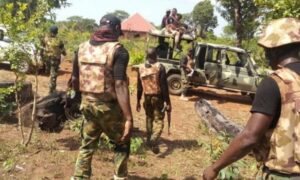
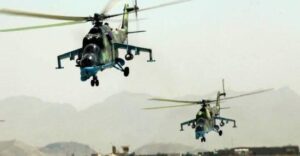
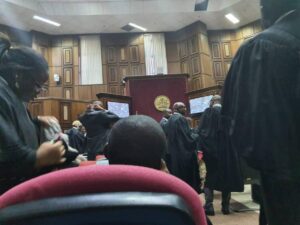
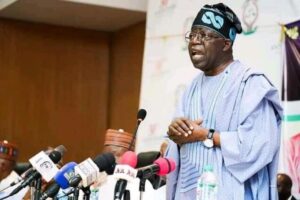
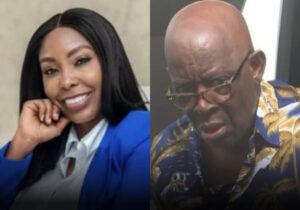


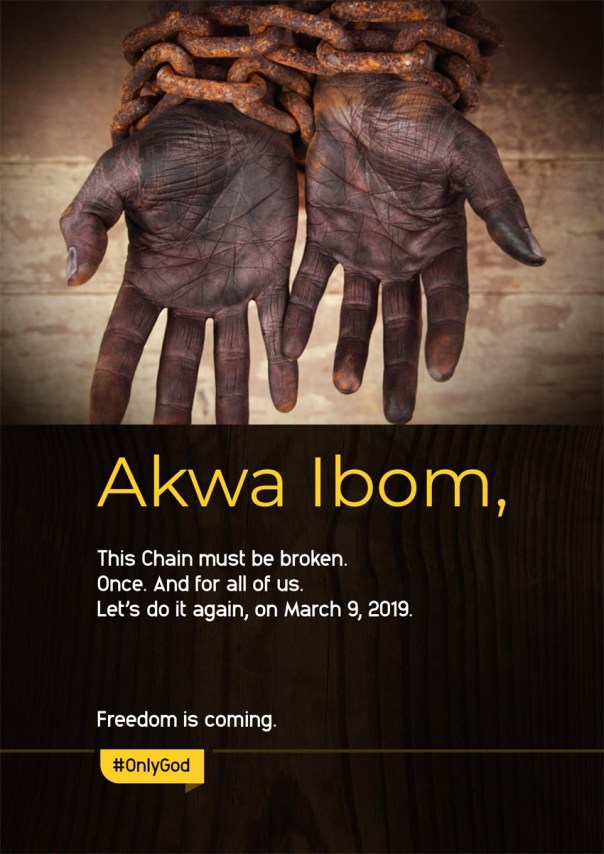



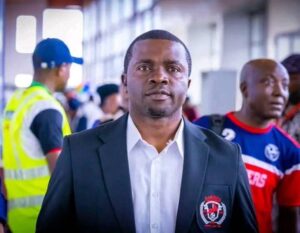




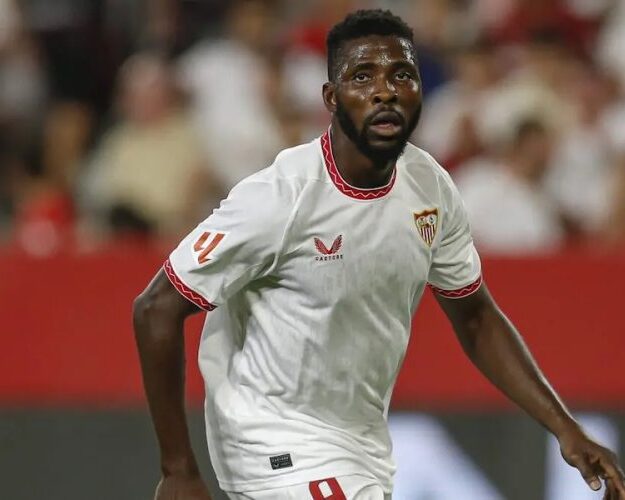



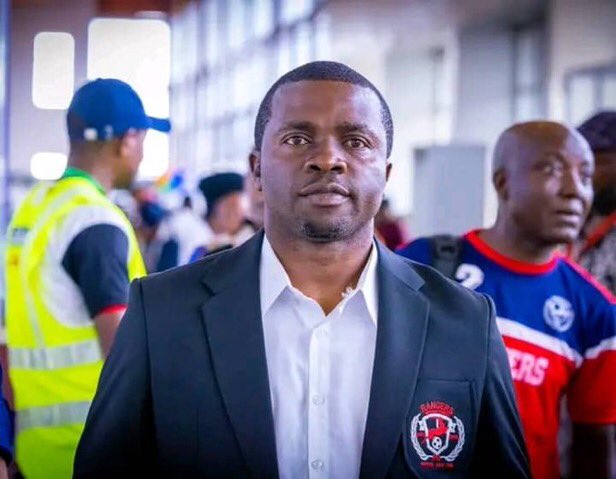
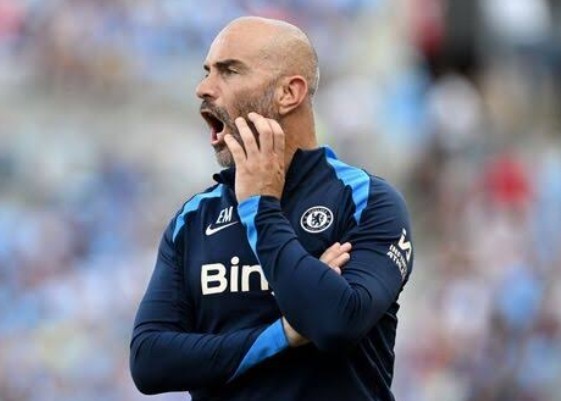

![American Pastor, David Wilson Seen Eating The Box Of Woman Who Isn’t His Wife [Video]](https://onlinenigeria.com/wp-content/uploads/2019/10/american-pastor-david-wilson-seen-eating-the-box-of-woman-who-isnt-his-wife-video-150x150.jpg)




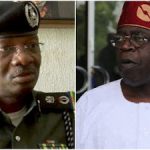





Leave a Comment